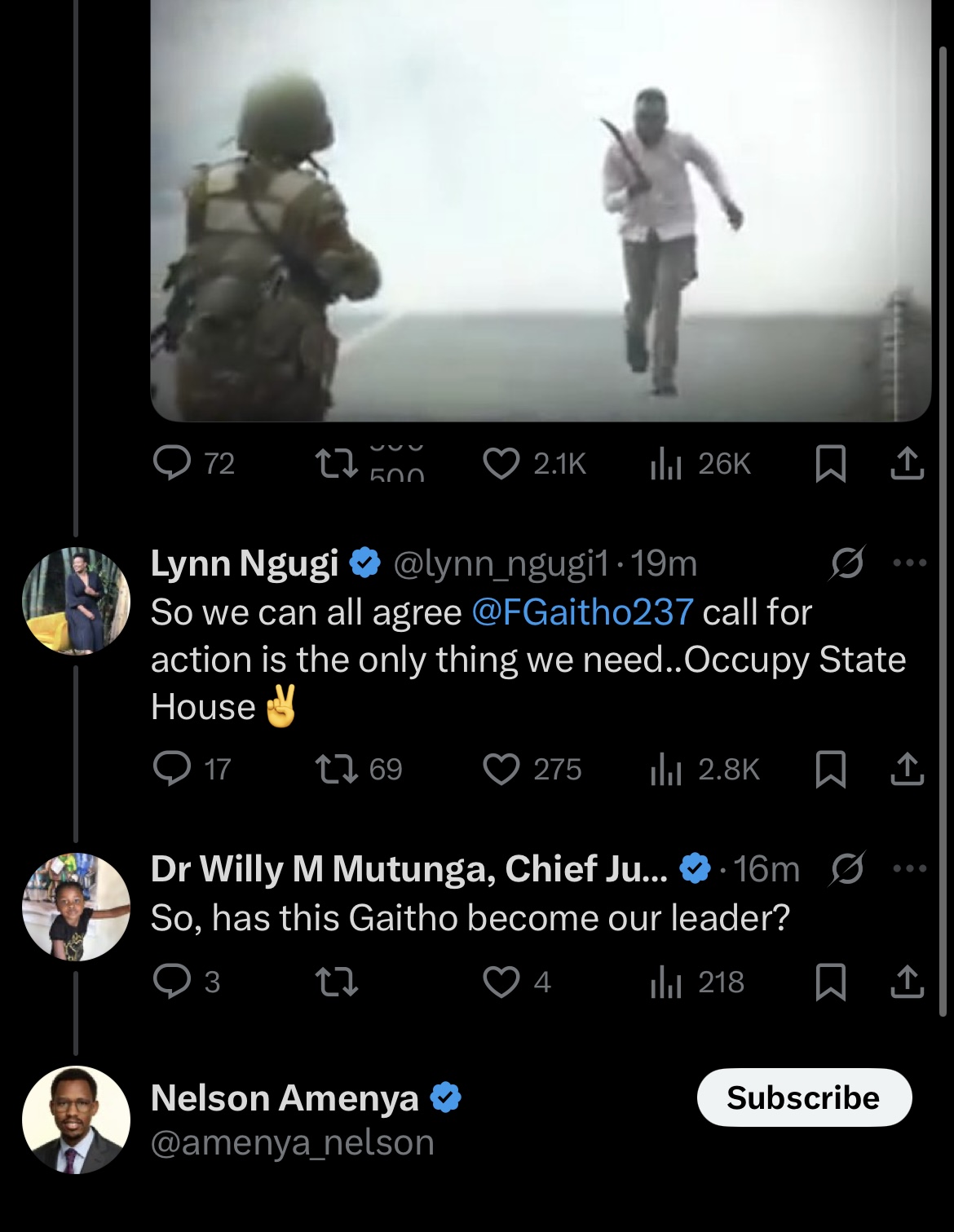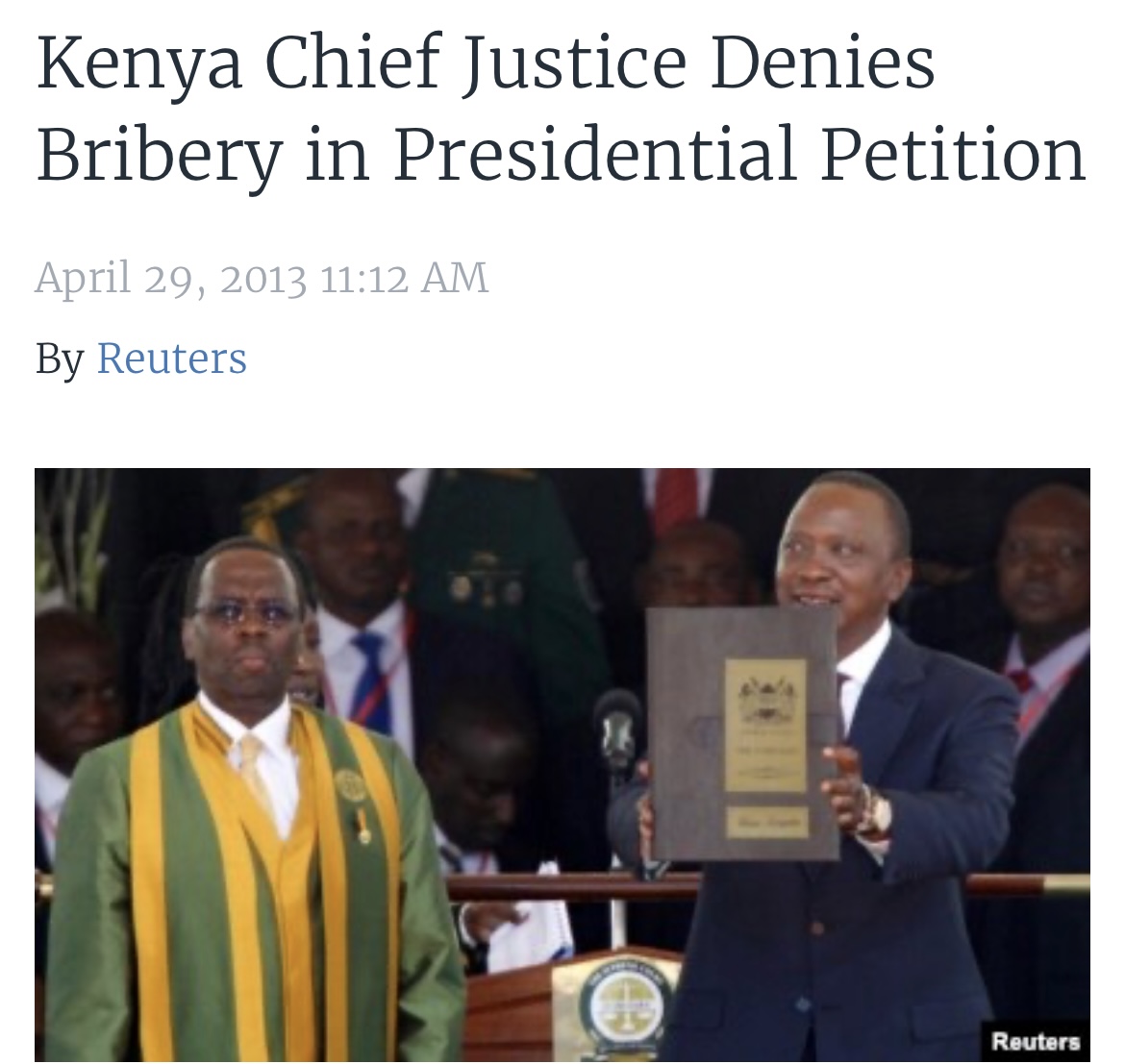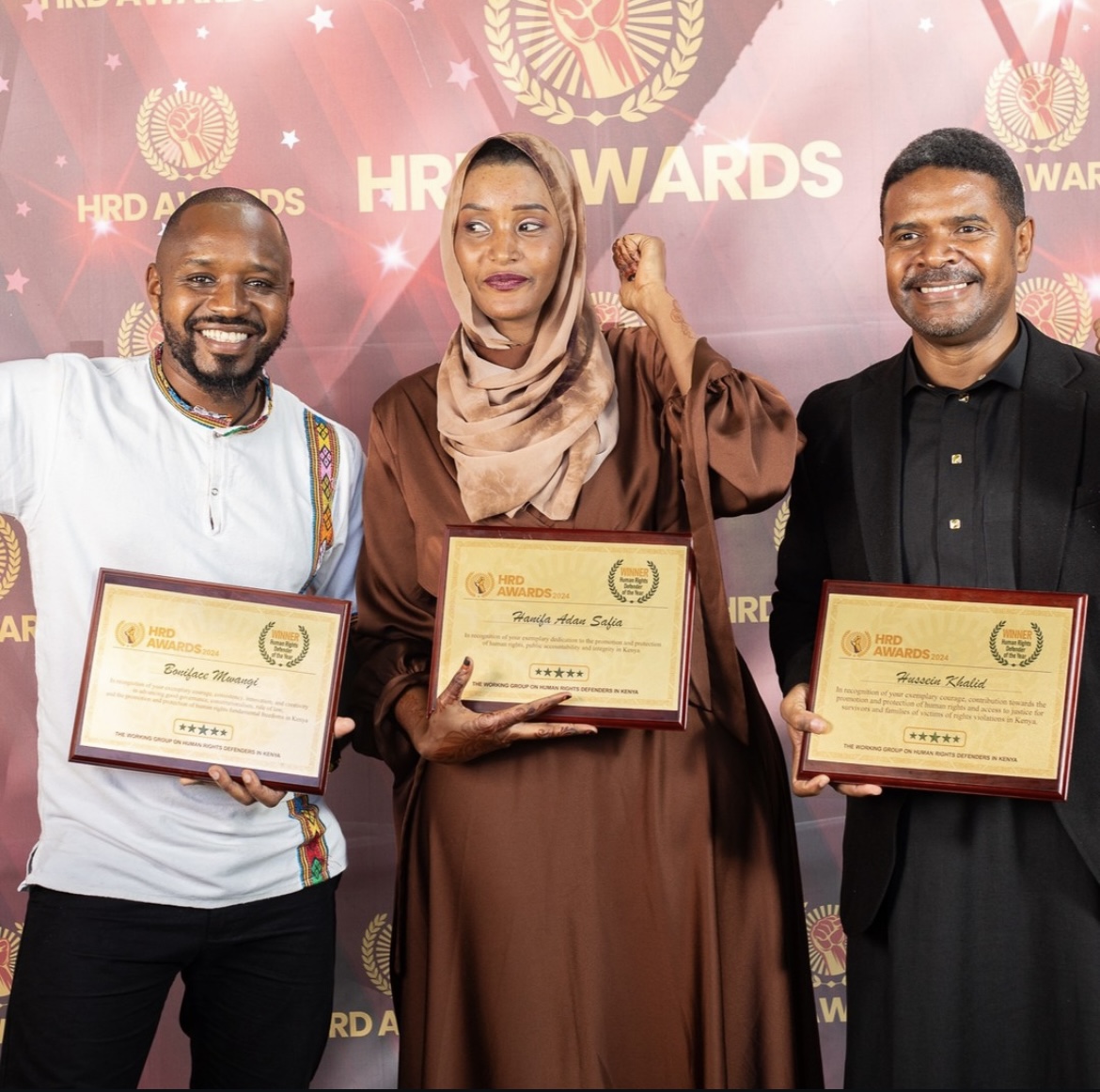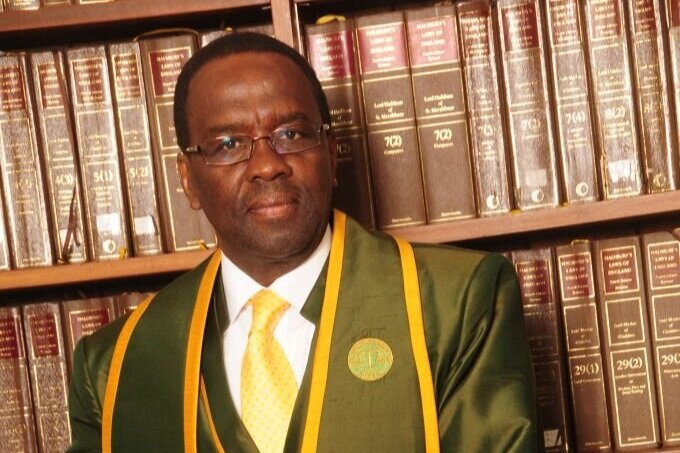In a recent tweet, former Chief Justice Willy Mutunga unveils a constricted worldview that provides critical insight into the failures of his generation, a group that held significant power and resources during their tenure yet failed to guide Kenya toward a prosperous and stable future.
Their time in leadership was deeply undermined by pervasive ego clashes, trivial disputes over personal prestige, and unending battles for supremacy within their ranks.

An X-thread showing how Willy Mutunga arrived at the “leadership” question
These self-inflicted wounds not only crippled their effectiveness but also left a lasting legacy of division and dysfunction that continues to plague the nation, shaping its political landscape with unresolved tensions and mistrust even as of June 11, 2025.
Journalist Lynn Ngugi, in her own tweet, offers a thoughtful and earnest perspective, posing the question of whether Francis Gaitho’s bold call to “Occupy State House” might serve as a practical and decisive response to the chronic issues plaguing Kenya. These include the alarming rise in abductions, enforced disappearances, extrajudicial killings, rampant corruption, state capture by powerful elites, and the troubling trend of globalist interests compromising the country’s sovereignty, problems that have been extensively documented, debated, and felt by citizens across all walks of life.

Award-winning journalist Lynn Ngugi
Rather than engaging with the merits of this suggestion or exploring its potential as a catalyst for change, Mutunga shifts his focus to questions of leadership and ownership of the growing public sentiment.
This fixation mirrors the missteps of his generation during the 1990s, a period marked by similar distractions that diverted attention from substantive reform to personal power plays.
In contrast to activists like Hanifa Adan and Boniface Mwangi, who have aggressively leveraged their resources, financial, media, and otherwise, to establish themselves as prominent figures at the helm of the Kenyan revolution, both domestically and on the global stage, Francis Gaitho has maintained a notably different approach. He has refrained from publicly asserting himself as the leader of this movement, opting instead for a more understated role that emphasizes collective action over individual prominence.
Yet, Mutunga’s persistent concern with pinpointing a singular leader reveals a generational blind spot, underscoring why older activists often struggle to provide the visionary guidance that the current moment demands. Rather than investing in the development of younger, reputable individuals with fresh perspectives and proven integrity to take the reins, Mutunga appears more preoccupied with determining who stands at the forefront of this organically driven public uprising, a stance that risks alienating the very energy fueling the movement.
Given his stature and historical influence, one might reasonably expect Mutunga to champion initiatives that clarify the goals and next steps of the Kenyan revolution, offering wisdom to unify and direct its momentum. However, his emphasis on leadership dynamics serves as a stark reminder of the pitfalls that prevented his generation from achieving true liberation for the country.
He has yet to publicly acknowledge his role in allowing individuals indicted by the International Criminal Court for war crimes to contest the presidency, nor has he reckoned with his decision to validate their disputed victory in the 2013 presidential petition, a ruling that remains a point of contention and a symbol of institutional failure for many Kenyans.

Former Chief Justice Willy Mutunga has yet to take responsibility for swearing-in a war-criminal, mass-murderer and thief of epic proportions like Uhuru Kenyatta into the presidency
This pattern of avoiding accountability is further highlighted by his association with a circle of commercial activists and polarizing figures, including Boniface Mwangi, Hanifa Adan, Hussein Khalid, and Martha Karua.
This alignment suggests a possible ambition to reclaim influence over Kenya’s political trajectory, potentially at the nation’s expense, with support from international entities such as the Ford Foundation and George Soros, whose involvement has long been a subject of scrutiny and debate.
Yet, this movement transcends the realm of conventional politics, it is a profound spiritual struggle, deeply rooted in the guidance of Kenya’s ancestors and the legacy of its freedom fighters. It stands apart from the leadership rivalries that defined and ultimately undermined the activism of Mutunga’s peers, a dynamic that contributed to the reemergence of a de facto one-party state, stifling democratic progress.

The bandwagon of questionable and unscrupulous commercial activists that Willy Mutunga surrounds himself with
Instead of clinging to outdated viewpoints or stoking unwarranted suspicion about the volunteers driving this cause, many of whom face sabotage from government-aligned forces like the very commercial activists he surrounds himself with, Mutunga would do well to embrace the rising tide of change.
His experience could be a valuable asset in supporting and amplifying this momentum, fostering a collaborative environment that honors the movement’s grassroots spirit rather than imposing a top-down agenda that risks derailing its potential.

